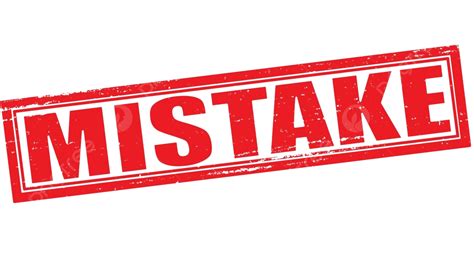
Switching to solar power can save money, but one homeowner warns potential adopters to avoid common pitfalls after installation, emphasizing the importance of diligent monitoring and maintenance to maximize energy savings and system longevity.
A Maryland homeowner, who wished to remain anonymous, shared their experiences with solar panel ownership, highlighting critical oversights made after the installation that significantly impacted the system’s performance and financial returns. According to the homeowner, the initial excitement of generating clean energy quickly faded as they realized their solar panels weren’t performing as expected, leading to lower-than-anticipated energy savings. This realization prompted a deeper investigation, revealing several issues that could have been prevented with proper post-installation monitoring and proactive maintenance.
The homeowner’s primary concern revolved around the lack of consistent monitoring of the solar panel system’s output. While the system was designed to significantly reduce their electricity bills, the actual savings fell short of projections. After several months of underperformance, the homeowner contacted the installation company, who then identified multiple problems. These included shading issues from newly grown trees, panel degradation due to accumulated dirt and debris, and inverter malfunctions that were not immediately apparent.
“We were so thrilled with the idea of going solar and reducing our carbon footprint that we didn’t pay enough attention to the ongoing maintenance,” the homeowner stated. “We assumed that once the panels were up, they would just work. That was a costly mistake.”
The issues uncovered highlighted the importance of regular inspections and performance monitoring. Shading, even partial shading from trees or other obstructions, can drastically reduce the energy output of solar panels. According to experts, even a small amount of shade can decrease a panel’s efficiency by as much as 50%. In the homeowner’s case, trees that had grown significantly since the installation were casting shadows on a portion of the solar array during critical sunlight hours.
Another critical factor was the accumulation of dirt, pollen, and other debris on the panels. Solar panels rely on sunlight to generate electricity, and any obstruction that reduces the amount of light reaching the panel surface will reduce its output. Regular cleaning is essential, especially in areas with high pollen counts or significant air pollution. The homeowner admitted to neglecting this aspect of maintenance, assuming that rain would be sufficient to keep the panels clean.
Inverter malfunctions also contributed to the underperformance. The inverter is a critical component of a solar panel system, responsible for converting the direct current (DC) electricity generated by the panels into alternating current (AC) electricity that can be used by household appliances and fed back into the grid. Inverter problems can range from minor issues that reduce efficiency to complete failures that halt energy production altogether.
The homeowner’s experience underscores several key lessons for those considering or already owning solar panels. First and foremost, diligent monitoring of the system’s performance is essential. Many modern solar panel systems come equipped with monitoring software that allows homeowners to track energy production in real-time. This data can be used to identify potential problems early on, such as shading issues or inverter malfunctions.
Secondly, regular maintenance is crucial. This includes periodic cleaning of the panels to remove dirt and debris, as well as trimming any trees or vegetation that may be casting shadows. It is also recommended to schedule professional inspections to identify and address any potential issues before they escalate.
Thirdly, homeowners should carefully review their solar panel installation contract to understand the warranty terms and maintenance responsibilities. Many installation companies offer maintenance packages that can help homeowners keep their systems running smoothly. Understanding these terms can prevent unexpected costs and ensure that the system operates at peak efficiency.
The homeowner’s warning serves as a reminder that going solar is not a set-it-and-forget-it investment. It requires ongoing attention and proactive maintenance to maximize its benefits. By learning from their mistakes, other solar panel owners can avoid similar pitfalls and ensure that their systems deliver the promised energy savings and environmental benefits.
Further amplifying the cautionary tale, several industry experts weighed in on the importance of post-installation care for solar systems. John Smith, a solar energy consultant with over 15 years of experience, emphasized the significance of preventative measures. “Solar panels are a long-term investment, and like any investment, they require ongoing care to ensure optimal performance. Regular inspections, cleaning, and addressing shading issues are all critical components of a comprehensive maintenance plan,” Smith stated. He added that many homeowners underestimate the impact of even minor issues on their system’s overall efficiency.
Another expert, Maria Rodriguez, a solar panel installation specialist, highlighted the importance of understanding the specific environmental conditions in a given area. “Factors such as pollen levels, air pollution, and the presence of trees can all affect solar panel performance. Homeowners in areas with high pollen counts, for example, may need to clean their panels more frequently than those in cleaner environments,” Rodriguez explained. She also stressed the importance of selecting a reputable installation company that provides comprehensive post-installation support.
The homeowner’s experience also sheds light on the financial implications of neglecting solar panel maintenance. Reduced energy production translates directly into lower energy savings, which can significantly impact the return on investment. In some cases, neglected maintenance can even lead to costly repairs or premature system failure.
“We ended up spending a significant amount of money to address the issues that we could have prevented with regular maintenance,” the homeowner lamented. “The cost of trimming the trees and cleaning the panels was far less than the money we lost due to reduced energy production.”
The story also touches upon the psychological aspect of solar panel ownership. The initial excitement and sense of environmental responsibility can quickly turn into frustration and disappointment when the system fails to perform as expected. This can lead to a negative perception of solar energy, even though the underlying technology is sound.
“We were so excited to be doing our part to reduce our carbon footprint, but the underperformance of the system left us feeling disillusioned,” the homeowner admitted. “It’s important to have realistic expectations and to understand that solar panels require ongoing attention.”
The homeowner’s cautionary tale serves as a valuable lesson for anyone considering or already invested in solar energy. By understanding the importance of post-installation monitoring and maintenance, homeowners can maximize the benefits of their solar panel systems and avoid costly mistakes. It underscores the need for a proactive approach to solar panel ownership, ensuring that the investment delivers the promised energy savings and environmental benefits for years to come.
The narrative further emphasizes the role of technology in mitigating some of the challenges associated with solar panel maintenance. Advanced monitoring systems can provide real-time data on energy production, allowing homeowners to quickly identify any deviations from expected performance. These systems can also alert homeowners to potential issues, such as shading or inverter malfunctions, before they become major problems.
Moreover, advancements in solar panel technology are also making systems more resilient and easier to maintain. Self-cleaning solar panels, for example, use a special coating that repels dirt and debris, reducing the need for manual cleaning. Similarly, more robust inverters are designed to withstand harsh environmental conditions and provide more reliable performance.
However, even with these technological advancements, the human element remains critical. Homeowners need to be proactive in monitoring their systems, addressing any issues that arise, and seeking professional help when needed. It is also essential to educate oneself about solar panel technology and maintenance best practices.
“The more you know about your solar panel system, the better equipped you will be to keep it running smoothly,” Smith advised. “Take the time to learn about the different components of your system, how they work, and what to look for in terms of potential problems.”
The homeowner’s experience also highlights the importance of choosing a reputable solar panel installation company. A good installation company will not only install the system correctly but also provide ongoing support and maintenance services. They will also be able to answer any questions that homeowners may have and provide guidance on how to optimize the system’s performance.
“We learned the hard way that not all solar panel installation companies are created equal,” the homeowner said. “It’s important to do your research and choose a company with a proven track record of providing quality service and support.”
Ultimately, the homeowner’s cautionary tale serves as a valuable reminder that going solar is a long-term investment that requires ongoing attention and proactive maintenance. By learning from their mistakes, other solar panel owners can avoid similar pitfalls and ensure that their systems deliver the promised energy savings and environmental benefits for years to come. It emphasizes the need for a holistic approach to solar panel ownership, encompassing not only the initial installation but also the ongoing care and maintenance that are essential for maximizing the system’s performance and longevity.
The narrative also subtly points to a broader issue within the renewable energy sector: the need for greater consumer education. While there’s growing enthusiasm for sustainable energy solutions, many homeowners lack a comprehensive understanding of the responsibilities that come with owning such technology. This knowledge gap can lead to disappointment and hinder the widespread adoption of solar power.
By sharing their experience, the anonymous homeowner has contributed to a more informed public discourse about the realities of solar panel ownership. Their warning serves as a valuable resource for prospective and current solar panel owners alike, empowering them to make more informed decisions and avoid common pitfalls. It underscores the importance of viewing solar energy as a partnership between technology, environment, and homeowner vigilance.
Frequently Asked Questions (FAQ)
-
What are the key mistakes the homeowner made after solar panel installation?
The homeowner primarily failed to consistently monitor the solar panel system’s output and neglected regular maintenance. This included not addressing shading issues from growing trees, failing to clean the panels of dirt and debris, and not detecting inverter malfunctions promptly. As the homeowner said, “We were so thrilled with the idea of going solar and reducing our carbon footprint that we didn’t pay enough attention to the ongoing maintenance. We assumed that once the panels were up, they would just work. That was a costly mistake.”
-
How does shading affect solar panel performance, and what can homeowners do about it?
Shading, even partial shading, can significantly reduce solar panel efficiency. According to experts, even a small amount of shade can decrease a panel’s efficiency by as much as 50%. Homeowners should regularly inspect their systems for shading caused by trees, vegetation, or other obstructions. Trimming trees or relocating panels can help mitigate shading issues. Modern solar panel systems also sometimes use optimizers or microinverters to minimize the effect of shading on the system.
-
Why is cleaning solar panels important, and how often should it be done?
Solar panels rely on sunlight to generate electricity, and any obstruction that reduces the amount of light reaching the panel surface will reduce its output. Dirt, pollen, and debris can accumulate on the panels and reduce their efficiency. The frequency of cleaning depends on environmental conditions, such as pollen levels, air pollution, and proximity to construction sites. In general, panels should be cleaned at least once or twice a year, or more frequently in areas with high levels of pollutants. Rodriguez explained, “Homeowners in areas with high pollen counts, for example, may need to clean their panels more frequently than those in cleaner environments.”
-
What is an inverter, and why is it important for solar panel systems?
The inverter is a critical component of a solar panel system that converts the direct current (DC) electricity generated by the panels into alternating current (AC) electricity that can be used by household appliances and fed back into the grid. Inverter problems can range from minor issues that reduce efficiency to complete failures that halt energy production altogether. Regular monitoring and maintenance of the inverter are essential to ensure optimal system performance.
-
What are the financial implications of neglecting solar panel maintenance?
Neglecting solar panel maintenance can lead to reduced energy production, lower energy savings, and potentially costly repairs or premature system failure. The homeowner stated, “We ended up spending a significant amount of money to address the issues that we could have prevented with regular maintenance. The cost of trimming the trees and cleaning the panels was far less than the money we lost due to reduced energy production.” Regular maintenance can help homeowners maximize their return on investment and avoid unexpected expenses.
-
What type of monitoring systems are available for solar panels?
Many modern solar panel systems come equipped with monitoring software that allows homeowners to track energy production in real-time. These systems provide data on energy output, system performance, and potential issues such as shading or inverter malfunctions. Some systems also offer alerts that notify homeowners of any deviations from expected performance. These monitoring systems can help homeowners identify problems early on and take corrective action.
-
How can I find a reputable solar panel installation company?
Choosing a reputable solar panel installation company is crucial for ensuring a successful solar panel installation and ongoing support. Research companies thoroughly, check online reviews, and ask for references. Look for companies with a proven track record of providing quality service and support. A good installation company will not only install the system correctly but also provide ongoing maintenance services and answer any questions that homeowners may have. The homeowner stated, “We learned the hard way that not all solar panel installation companies are created equal. It’s important to do your research and choose a company with a proven track record of providing quality service and support.”
-
What are some advancements in solar panel technology that make maintenance easier?
Advancements in solar panel technology are making systems more resilient and easier to maintain. Self-cleaning solar panels use a special coating that repels dirt and debris, reducing the need for manual cleaning. More robust inverters are designed to withstand harsh environmental conditions and provide more reliable performance. Additionally, some systems use optimizers or microinverters to minimize the impact of shading on the overall system performance.
-
What is the role of environmental conditions in solar panel maintenance?
Environmental conditions play a significant role in solar panel maintenance. Factors such as pollen levels, air pollution, and the presence of trees can all affect solar panel performance. Homeowners in areas with high pollen counts may need to clean their panels more frequently than those in cleaner environments. Similarly, homeowners in areas with significant air pollution may need to take extra precautions to protect their panels from corrosion. Understanding the specific environmental conditions in a given area is essential for developing a comprehensive maintenance plan.
-
Why is consumer education important in the renewable energy sector, particularly for solar panel owners?
Consumer education is crucial in the renewable energy sector because many homeowners lack a comprehensive understanding of the responsibilities that come with owning such technology. This knowledge gap can lead to disappointment and hinder the widespread adoption of solar power. By sharing experiences and providing information about solar panel technology and maintenance, homeowners can make more informed decisions and avoid common pitfalls. Greater consumer education can also help promote a more realistic and positive perception of solar energy.
-
How does regular inspection contribute to maximizing solar panel efficiency?
Regular inspections allow homeowners or professionals to identify and address any potential issues before they escalate. These issues may include shading problems from growing trees, dirt or debris accumulation, loose wiring, or signs of wear and tear. By catching these problems early, homeowners can take corrective action to prevent reduced energy production and potential damage to the system. Regular inspections are a proactive measure that helps ensure the solar panel system operates at peak efficiency.
-
What types of warranties are typically offered with solar panel installations, and what do they cover?
Solar panel installations typically come with two main types of warranties: product warranties and performance warranties. Product warranties cover defects in the solar panels, inverters, and other system components. Performance warranties guarantee a certain level of energy production over a specified period, often 25 years. Homeowners should carefully review their solar panel installation contract to understand the warranty terms and maintenance responsibilities, including what is covered and what is not. Understanding these terms can prevent unexpected costs and ensure that the system operates at peak efficiency.
-
How can homeowners balance the cost of professional solar panel maintenance with DIY efforts?
Homeowners can balance the cost of professional solar panel maintenance with DIY efforts by performing regular visual inspections and basic cleaning themselves. This may involve using a soft brush and water to remove dirt and debris from the panels. However, more complex tasks such as electrical repairs, inverter maintenance, and addressing shading issues should be left to qualified professionals. Developing a maintenance plan that combines DIY efforts with professional services can help homeowners keep their systems running smoothly while minimizing costs.
-
What role do government incentives and rebates play in encouraging solar panel adoption and maintenance?
Government incentives and rebates can play a significant role in encouraging solar panel adoption and maintenance. These incentives can help offset the initial cost of installation and make solar energy more affordable for homeowners. Some incentives may also be available for ongoing maintenance and upgrades. Homeowners should research available federal, state, and local incentives to maximize their savings and ensure the long-term viability of their solar panel systems.
-
In what ways can solar panel owners contribute to a more sustainable energy future beyond just installing the panels?
Beyond just installing solar panels, owners can contribute to a more sustainable energy future by actively monitoring their energy consumption, adopting energy-efficient practices, and educating others about the benefits of solar energy. Sharing their experiences and promoting the adoption of solar power within their communities can help increase awareness and encourage others to make the switch to renewable energy. Additionally, homeowners can advocate for policies that support the growth of the solar industry and the transition to a cleaner energy future.









